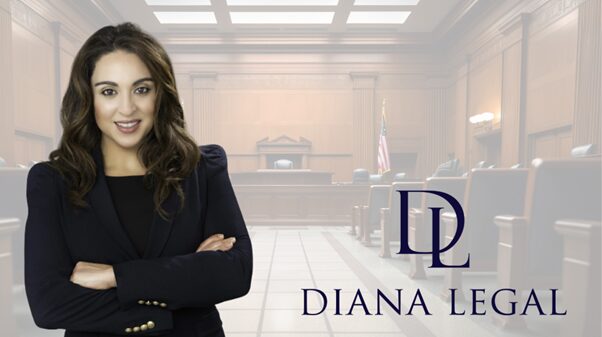Phone: 619-432-5145
Phone: 619-432-5145

Hiring a personal injury lawyer is a critical decision that can influence the success of your case and the compensation you receive, making it essential to ask important questions during your initial consultation. With so many legal professionals available, knowing what to ask during your initial consultation will empower you to choose the right advocate. This guide provides 50 essential questions to ask a personal injury lawyer—covering everything from experience and fees to case strategy and communication—so you can move forward with clarity and confidence.
Speaking with a personal injury lawyer might feel intimidating, especially if you’re still dealing with the aftermath of an accident. However, it’s important to remember that this is your opportunity to assess whether the attorney is the right fit for your case. Start by being prepared—bring any documents related to your injury, such as medical records, accident reports, or correspondence with insurance companies.
Be honest and direct when describing your situation, and don’t hesitate to ask for clarification if legal jargon gets confusing. A good lawyer will welcome your questions and explain things in terms you can understand. Establishing open communication from the beginning lays the groundwork for a strong and collaborative client-attorney relationship. Ensuring that you and your lawyer are on the same page about your case and communication expectations can prevent misunderstandings and foster a more effective working relationship.
Many clients hesitate to share certain details with their attorney, fearing judgment or thinking some facts are unimportant. But withholding information—intentionally or not—can weaken your case. Your lawyer needs a complete picture to develop the best legal strategy and anticipate any challenges the opposing party may raise.
Full disclosure about your injuries, pre-existing conditions, past lawsuits, or anything that could surface in court allows your attorney to prepare in advance for various aspects of your case. Transparency fosters trust and helps your lawyer advocate more effectively on your behalf. Remember, your attorney is on your side and bound by confidentiality. The more open you are, the stronger your case will be.

Before hiring a personal injury lawyer, it’s important to understand their experience and qualifications by asking key questions. These questions help you determine whether the attorney has the right background to handle your specific type of case. For example, asking how long they’ve been practicing and how many similar cases they’ve won gives you insight into their track record. Trial experience also matters, especially if your case doesn’t settle and goes to court.
This question helps you understand the lawyer’s experience in the field of personal injury law. A seasoned attorney is likely to have encountered a wide variety of cases and legal challenges, which can be invaluable when navigating complex or unusual situations.
Every personal injury case is different—car accidents, slip-and-falls, medical malpractice, etc.—so it’s important to ask if the potential lawyer has direct experience with your specific type of case. A lawyer who has handled similar situations will know the best strategies and what to expect from insurers or opposing attorneys.
Some attorneys handle a wide range of legal matters, while others specialize. Asking this helps you determine if the lawyer is a true personal injury specialist or if it’s just a small part of their work. The more focused their practice, the more likely they are to be up-to-date on personal injury laws and trends.
Not all personal injury lawyers are experienced attorneys in court. This question helps you gauge whether the attorney is prepared to go to trial if a fair settlement isn’t offered. Trial experience also puts pressure on insurance companies, who are more likely to negotiate seriously when facing a lawyer who isn’t afraid to litigate.
While no lawyer can guarantee a result, knowing their success rate in similar cases can give you confidence in their ability to deliver. It also shows whether they’re being transparent about outcomes and have a proven track record of winning or settling cases favorably for clients like you.

This section is designed to assess how the lawyer views your case from a legal and strategic standpoint. By asking about the strengths, challenges, expected compensation, and timeline, you get a clearer picture of what to expect. It also reveals whether the lawyer takes a realistic, client-focused approach or makes promises they may not be able to keep.
This question gives you a professional, preliminary opinion on whether your case has legal merit and what the attorney thinks about its strength. A good attorney will assess factors such as liability, damages, evidence, and jurisdiction to give you an honest, informed answer—without overpromising results.
Even strong cases can face obstacles. By asking this, you’re encouraging the lawyer to identify potential weaknesses—such as unclear liability, lack of evidence, or difficult insurance adjusters—so you’re prepared and can work together to overcome them.
While no lawyer can guarantee a specific dollar amount, an experienced attorney can give you a general idea based on past outcomes and the details of your case. This may include compensation for medical bills, lost wages, pain and suffering, and future expenses related to your injury.
Timeframes for personal injury cases can vary widely. Asking this helps set realistic expectations. The attorney can explain whether your case may be resolved quickly through a settlement, or if it might take longer due to court schedules, negotiations, or complex legal issues. An experienced lawyer can provide a more accurate prediction of the timeline based on their familiarity with similar cases.
Most personal injury cases settle out of court, but it’s important to know whether the lawyer expects your case to follow that path. If they anticipate trial, they should explain why and how that might affect your timeline, costs, and potential compensation.

Understanding how a lawyer charges for their services is crucial. Most personal injury lawyers work on a contingency fee basis, meaning they only get paid if you win. However, it’s important to clarify exactly what percentage they’ll take, what other costs you might incur, and what happens if you lose. These questions protect you from surprises and ensure you’re financially prepared.
This is one of the most important financial questions to ask, as a contingency fee agreement means the lawyer only gets paid if they win your case. A contingency fee typically involves the lawyer earning a percentage of your settlement or court award. This arrangement helps injury victims access legal help without paying anything upfront.
Personal injury lawyers who work on a contingency fee basis typically take a percentage of the settlement or court award as their payment, but the exact contingency fee percentage can vary from one attorney to another. This question helps you understand how the lawyer’s fees are structured and whether the rate changes depending on whether your case settles early or goes to trial. It’s important to ask for a clear explanation of the fee agreement so you know what to expect before moving forward.
While the legal fee may be contingent, there can still be other expenses—such as filing fees, medical records, expert witnesses, or court costs. Ask whether the law firm advances these costs and whether you’re expected to reimburse them.
Some lawyers will cover all case-related expenses even if you don’t win, while others may require you to repay additional costs regardless of the outcome. It’s critical to understand this ahead of time to avoid unexpected financial risk.
Always request a written contract that clearly outlines the terms of your agreement, including how fees and costs are calculated and paid. This protects both parties and ensures there are no misunderstandings later on.

Personal injury cases can take months or even years to resolve, so it’s important to know who you’ll be dealing with. These questions help you determine whether the lawyer will personally handle your case or delegate it to someone else. You’ll also get a sense of their communication style, how often they’ll keep you updated, and whether you can expect responsive, personalized service.
Law firms vary in how they manage cases, and it’s important to know whether experienced associates or junior attorneys will be handling your case. Some lawyers handle everything themselves, while others delegate work to junior attorneys or support staff. This question helps you understand who’s doing the actual legal work and ensures you’re comfortable with the arrangement.
It’s important to know who your contact person will be throughout your case. Some firms assign a specific attorney or case manager as your primary contact. Asking this helps avoid confusion and ensures you’re not constantly shuffled between people.
Consistent communication builds trust and keeps you informed. Ask how frequently you can expect updates—whether weekly, monthly, or only when something significant happens—so you’re not left in the dark during long stretches of legal work.
Legal matters can be stressful, and sometimes you need quick answers. Knowing whether you can reach your lawyer directly—by phone, email, or text—helps manage expectations and gives you peace of mind when urgent issues arise.
Paralegals and less experienced associates often play a key role in organizing documents, scheduling, and client communications. Understanding their involvement gives you insight into the firm’s workflow and helps you know who to contact for different types of questions.

A thorough investigation is often the backbone of a strong case. This set of questions helps you evaluate the attorney’s process for gathering evidence, securing expert witnesses, reviewing reports, and dealing with insurance companies. The more proactive and resourceful the lawyer is in this phase, the better your chances for a favorable outcome.
A thorough investigation lays the foundation for a successful personal injury case. This question helps you understand the lawyer’s process for gathering facts, identifying liable parties, and building a compelling narrative. It may include reviewing photos, videos, witness statements, surveillance footage, or property damage.
Medical records and official accident reports are essential pieces of evidence. Ask if the attorney will take care of obtaining these documents on your behalf. A proactive lawyer will not only gather them but also analyze the details to support your claim for compensation.
In complex cases—such as major vehicle accidents or premises liability—outside experts may be needed to prove fault. This question reveals whether the lawyer has a network of professionals like accident reconstructionists, forensic analysts, or private investigators who can strengthen your case.
Dealing with insurance companies can be stressful and risky if you’re not familiar with legal tactics. A good personal injury lawyer will manage all communications with insurers, protecting you from saying anything that might harm your case and ensuring all documentation is accurate and timely. This is especially important if the insurance company refuses to settle.
Beyond basic records, successful cases often require additional evidence such as expert opinions, employment records, pain journals, and witness interviews. This question helps you understand the lawyer’s approach to gathering, organizing, and presenting proof of your injuries and losses.

Since personal injury cases revolve around your physical and emotional harm, medical documentation is key. These questions clarify whether the attorney can assist with accessing medical care, whether they’ll track your treatment and expenses, and how they’ll handle delayed symptoms. This ensures your medical damages are fully accounted for in any settlement or judgment.
Many personal injury lawyers have established relationships with reputable doctors, physical therapists, and specialists who understand the documentation needed for legal cases. Asking this can be especially helpful if you don’t already have a treating physician or if you need second opinions or ongoing care.
If you’re unable to pay for treatment out of pocket, ask whether the attorney can help you access care through a medical lien—an agreement where the provider defers payment until your case settles. A lawyer familiar with this process can help you continue treatment without financial strain. A knowledgeable legal representative can help you access care through a medical lien, ensuring you continue treatment without financial strain.
Medical records are among the most critical pieces of evidence in a personal injury case. They provide proof of injury, document the timeline of treatment, and help establish the link between the accident and your condition. Without proper medical documentation, it’s difficult to prove damages or justify compensation.
Accurately tracking medical bills, receipts, prescriptions, and insurance payments is essential for calculating damages. A detail-oriented attorney will help you organize and present these expenses clearly, making it easier to support your claim and avoid missing reimbursable costs.
Some injuries—like whiplash, soft tissue damage, or psychological trauma—may not appear immediately. It’s important to ask whether these delayed symptoms can be accounted for in your claim. A good lawyer will know how to include late-onset injuries and ensure they’re properly documented by medical professionals.

Most personal injury cases are resolved through settlement negotiations rather than trials. These questions help you understand the lawyer’s negotiation style, experience with specific insurance companies, and ability to recognize fair offers. You’ll also learn how they’ll handle situations if you disagree on whether to accept a deal.
Most personal injury cases are resolved through settlements rather than courtroom trials. This question helps you understand whether your attorney typically aims to negotiate a resolution first. A good lawyer will pursue a fair settlement early on—but be prepared to litigate if necessary—saving you time, stress, and additional legal costs. Effective legal representation is crucial in ensuring your rights are advocated for and navigating the complexities of personal injury claims.
Not all offers from insurance companies are reasonable. Ask how the lawyer evaluates settlement offers—do they base it on past case outcomes, your medical expenses, pain and suffering, and future needs? A skilled attorney will break down the numbers and explain whether the offer reflects the full value of your claim, ensuring you receive fair compensation.
Every insurance company has its own negotiation style, and some are more difficult to work with than others. If your lawyer has experience dealing with the specific insurer involved, they may have insight into that company’s patterns—helping shape a more effective negotiation strategy.
While the final decision is always yours, this question gives you an idea of your lawyer’s judgment and standards. An ethical attorney won’t push you to settle for less than your case is worth, but will explain the risks and rewards of every option so you can make an informed decision.
You and your lawyer may not always see eye-to-eye on settlement decisions. A professional attorney will respect your input, fully explain their recommendations, and work with you to find the best path forward—even if you choose to reject a proposed offer. This question clarifies how much influence you’ll have in the decision-making process.

While many cases settle, your lawyer should still be ready and willing to take the case to trial if necessary. These questions give insight into the attorney’s litigation experience, courtroom confidence, and how they’ll prepare you to testify. They also help you understand the potential timeline and what to expect if your case does go to court.
This is a crucial question to assess whether your lawyer has the skill—and the willingness—to take your case to court. Some attorneys may push clients to settle quickly, even for less than they deserve, because they aren’t confident in a courtroom. You want someone who won’t hesitate to litigate if a fair settlement isn’t offered. You want the right lawyer who can properly manage your case during this stressful time.
Familiarity with local court procedures, judges, and opposing counsel can give your attorney a strategic edge. A lawyer who regularly practices in your area is more likely to understand the nuances of the jurisdiction and how best to present your case in that particular courtroom environment.
Going to trial can be intimidating, especially if it’s your first time in court. Ask how your lawyer prepares clients for testimony, cross-examinations, and courtroom behavior. A thorough attorney will walk you through the process, rehearse your statements, and ensure you feel confident before stepping into court.
Understanding the trial process—from jury selection to closing arguments—can reduce anxiety and help you stay engaged in your case. This question gives you a sense of what’s ahead and whether the attorney takes the time to educate clients on each step, including timelines and possible delays.
Trial timelines vary depending on the court’s schedule, the complexity of the case, and how long the jury deliberates. While no lawyer can give an exact prediction, a seasoned attorney should be able to give a general idea based on past experience. This helps you set expectations for the final resolution.

A successful attorney-client relationship requires effort from both sides. These questions outline what’s expected of you as a client and how the lawyer will support and guide you. You’ll also learn more about how they explain legal concepts, maintain confidentiality, and whether they have satisfied clients willing to share testimonials.
While your attorney handles the legal aspects of your case, your role as a client is equally important. This question clarifies what’s expected of you—such as attending medical appointments, providing honest information, staying in communication, and following legal advice. A cooperative and responsive client can make a significant difference in the outcome of a case.
A good attorney-client relationship is a partnership. Asking this shows you’re committed to your case’s success. Your lawyer might suggest keeping a pain journal, saving receipts, or collecting any photos or witness information. This type of proactive involvement helps your lawyer present a more compelling and well-supported argument.
You need to know that the information you share is protected. This question ensures the attorney will keep your personal and medical information confidential and only share it with those necessary for your case. It also reinforces the trust that’s essential for open communication throughout your legal journey.
Legal processes can be confusing and full of jargon. A good attorney will take the time to break down each step so you can make informed decisions. This question ensures that your lawyer values clear communication and won’t leave you feeling lost or overwhelmed by the legal system.
Hearing from a past client can provide peace of mind and give you a sense of the lawyer’s track record. Whether through online reviews or direct referrals, testimonials offer real-world insight into the attorney’s communication style, professionalism, and results. If they’re reluctant to share any, consider it a red flag.

Even after your case is resolved, there are often follow-up needs—such as collecting settlement payments or getting legal referrals for future matters. These final questions ensure the lawyer won’t disappear once the case is closed. They show whether the attorney is committed to long-term client care, and not just a one-time transaction.
The end of a personal injury lawsuit doesn’t always mean everything is complete. There may be final paperwork to sign, liens to resolve, or payment distributions to handle. This question helps you understand what to expect after a settlement or verdict and whether your lawyer will continue to guide you through the final steps.
Sometimes, receiving the compensation you’re awarded isn’t automatic. Insurance companies may delay payment, or legal paperwork may slow the process. Ask whether your attorney will assist with following up and ensuring your settlement funds are properly disbursed—especially if there are outstanding medical liens or expenses.
This question clarifies the order in which deductions are made from your compensation. Some lawyers take their percentage from the gross settlement, while others subtract case-related expenses first, then take their fee from the net amount. Understanding this can affect how much money you take home.
A strong attorney-client relationship shouldn’t end after one case. Ask whether the lawyer or their firm handles other types of legal matters, and whether they’re available to help you in the future. Many clients return to attorneys they trust—or refer friends and family—so it’s helpful to know what ongoing support is available.
Whether it’s help with related legal issues, medical billing support, or referrals to financial planners or therapists, some firms go above and beyond. This question reveals whether your attorney sees clients as long-term relationships—not just one-time transactions—and is willing to connect you with helpful resources post-case.

Contact Diana Legal now (619-432-5145) for a free consultation and case evaluation!
At Diana Legal, we understand that every case is personal. That’s why we offer free, no-obligation consultations to help you understand your legal options without added pressure. Whether you’re dealing with an accident, injury, or legal uncertainty, our experienced team is here to listen, guide, and advocate for you.
Bring your questions, your documents, and your story—we’ll take the time to walk you through what’s possible, and what comes next.
Ready to take the next step? Call us today (619-432-5145) to speak with a member of our team, or schedule your free consultation at a time that works best for you. If you have any questions before getting started, feel free to contact our team—we’re here to help you move forward with clarity and confidence.